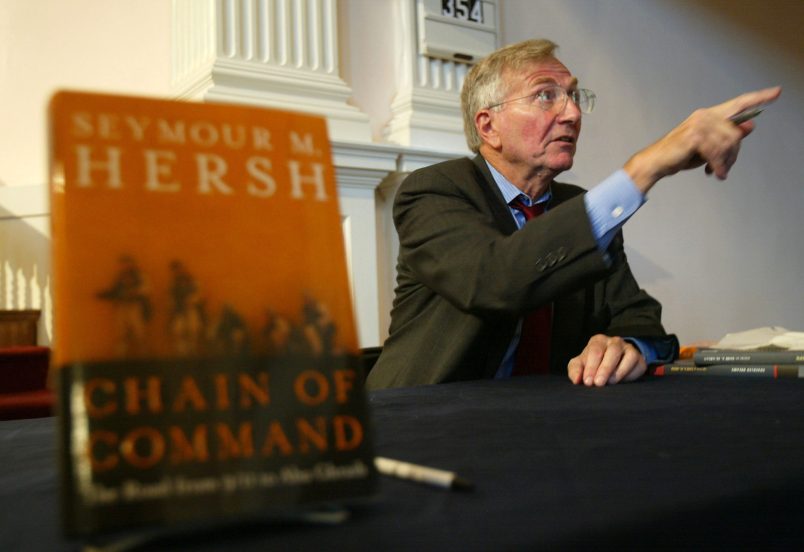I’ve had questions from a number of you about why there’s been so little mainstream media pick up of Seymour Hersh’s claim that the U.S. destroyed the Nord Stream pipeline last year. As a factual matter, I think it’s highly unlikely that this is true. But my point here isn’t to dispute the report. People know that Hersh is one of the most high profile and celebrated investigative reporters of the last half century. So how is it he’s suddenly seen as an unreliable source of information?
On this point I think I can shed some light.
Over the years I’ve spoken to various of Hersh’s editors and what I heard was pretty consistent: an ingenious reporter totally reliant on having good and strict editing. Basically half or more than half of what he’d come up with wasn’t remotely reliable. But if you could winnow out that crazy stuff and single source claims that didn’t pan out, there was some really great stuff there. In other words, they described Hersh as the kind of reporter who is desperately in need of a good and demanding editor.
This feature of Hersh’s reporting came out sometimes in the first decade of this century when he was doing a lot of reporting for The New Yorker. Hersh’s published pieces would make one series of claims. But then out on the college lecture circuit or perhaps at conferences he would make much more dramatic claims that would start whole new news cycles. People would say, why didn’t we hear about this new revelation in the article? I’m not talking about any particular example of this. But in general, I suspect this is why. On his own he’d air claims that couldn’t get past his editors in print.
In the last decade or more, there’s been a related pattern. Some of Hersh’s most eye-popping pieces started showing up in more low-profile publications and (much more importantly) publications that had little track record of publishing investigative reporting. I make this distinction because this isn’t a prestige issue. Some publications are designed to bring and have experience bringing investigative pieces to publication and some aren’t. In the latter case, it’s not because they’re bad publications. They just specialize in different kinds of journalism, such as commentary or criticism.
Now he’s publishing his material on his own Substack, presumably with little or no editing. That doesn’t mean no one else is involved. Perhaps he has someone who does story editing. I mean, precisely the thing that people like about a Substack (and perhaps some of what you like about the Editors’ Blog): you’re getting the person unvarnished, without anyone else involved who says, “No, you don’t have that nailed down. We’re not publishing that.”
Let me conclude by saying, again: I have no inside or special knowledge of the still very murky question around who sabotaged the Nord Stream pipeline. For a number of reasons — both logical (who gains?) and based on reporting by others — I think it’s highly unlikely that the U.S. was behind it. But maybe I’m wrong. Who knows? Maybe you have a different opinion. That’s fine. This also isn’t an attack on Hersh. Part of me really hopes no one passes this on to him. Because I’m not looking for a fight and I have a lot of respect for the guy. The history-making exclusives from the Vietnam War through the Iraq War speak for themselves. But on this specific question — why is a big, celebrated name like Seymour Hersh suddenly ignored on what seems like a huge story? — I’m pretty confident that I have some insight.






